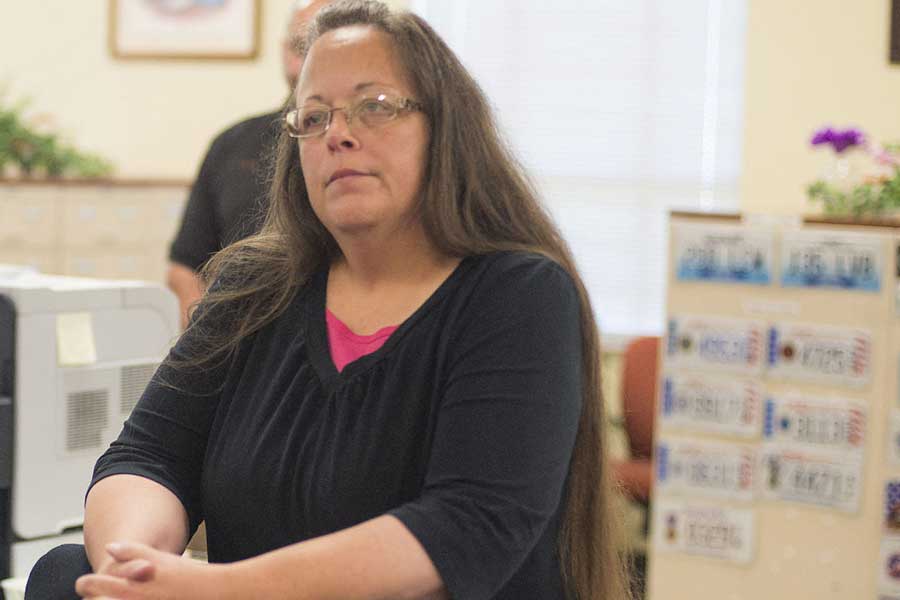Kim Davis is simultaneously one of the most reviled figures by LGBT advocates and one of the most revered by LGBT opponents.
But, her steadfast commitment to “upholding Christian principles” is, effectively, driving the wedge unnecessarily deeper between people of faith and LGBT-accepting individuals.
Davis is a county clerk in Kentucky who, for months, has been refusing to issue marriage licenses — a main function of her job — because she disagrees with the mandate, issued by the U.S. Supreme Court, that same-sex couples are eligible for licenses. Davis has taken her case to court after court, judge after judge, and repeatedly been ordered, even by the state’s governor, to get back to work. As of presstime, she remains resolutely ignoring those orders.
That Davis is continuing her futile crusade in the name of Christianity is doing a disservice to the countless Christians who want to welcome LGBT people into the fold. Davis’ misguided efforts are certainly supported by some self-described believers, but she surely does not represent all, or even anywhere near a majority, of Christians. Poll numbers have shown that believers of all denominations are increasingly embracing LGBT equality.
Christianity and LGBT identity should not be considered mutually exclusive, an idea that has been promoted for decades by Christians, LGBTs and LGBT Christians.
In this time of evolving equality for LGBT people, faith communities can be integral allies. As our community fights for nondiscrimination laws and measures to protect the most marginalized members of our community from harassment and violence, faith communities can champion and spread the message of basic human dignity for LGBT people. Many religious circles were admittedly closed off to LGBT equality for years but are now opening their doors, and introducing LGBT issues to their followers, an important inroad that can further advance our community’s goals.
Faith communities can also be important sources of support. LGBT young people are growing up in a time where our country has marriage equality, but they may still face homophobia in their classrooms and resistance from families. In such times, youth should be able to turn to their faith community for guidance and comfort.
But Davis is doing her damnedest to cut those ties and curtail the progress that has, and continues to be, made to bridge the gap among LGBT communities and communities of faith. With each hateful message she proclaims, faith and LGBT leaders should counter with their own — because people are listening.

